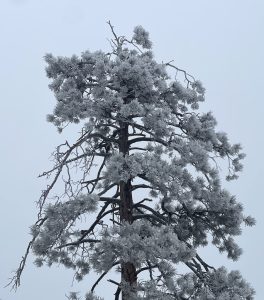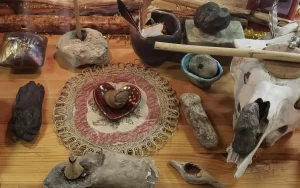by Florian Birkmayer, MD
A friend recently sent me this very sad and touching article from the NY Times about people who have lost their sense of smell due to Covid-19.
Smell doesn’t just tell us whether food may be spoiled or conversely makes us enjoy its taste, but has a much deeper impact on mood and even our sense of self, as people interviewed in the article share. From the article:” ‘I feel alien from myself,’ one participant wrote. ‘It’s also kind of a loneliness in the world. Like a part of me is missing, as I can no longer smell and experience the emotions of everyday basic living.’ […] Another said, ‘I feel discombobulated — like I don’t exist. I can’t smell my house and feel at home. I can’t smell fresh air or grass when I go out. I can’t smell the rain.’”
Even though scent is overlooked in so many ways, it shapes our sense of self profoundly, perhaps exactly because it is so overlooked. When we think of a friend or a loved one we probably visualize their face in our imagination, but how many of us remember how those close to us smell? And yet, it feels good to smell and old friend or loved one. Due to the pandemic, we haven’t been able to hug or get close enough to our loved ones to really get a good whiff of their smell.
It’s not even just other people, or certain objects. Scent literally creates our sense of space and time. Some of our favorite places have their own unique smell, such as certain areas by the seaside or in the mountains. I love the unique aroma of the bosque, the wooded wilderness along certain stretches of the Rio Grande through which I’ve taken walks for many years and only in the past couple years have I figured out that what gives the area its unique smell is the aroma of yerba mansa. The well-known independent bookstore Powell’s in Portland, OR asked its customers what they missed most about the in-store shopping experience, who replied it was the smell of books, which led Powell’s to create a signature scent of old books.
While anosmia, the loss of sense of smell can make people feel cut off from life, almost undead, conversely certain scents can literally revive us. In May 2019 a teenager in the UK who had been in a coma for 3 weeks after a near drowning was woken up by the scent of a particular deodorant.
The Default Mode Network, which is the ‘autopilot’ system where our story of ourselves is encoded, is deeply linked with the olfactory system and the ability to interact with the world through smells. When we lose our sense of smell, we are cut off from the world, leading to social isolation, loss of pleasure, a sense of detachment and isolation and I would argue a loss of the story of ourselves. But like so much of our ego we are mostly unconscious of how our story of ourselves is formed. Aromas can help us wake up from default mode.
One of the hidden blessings of the Covid pandemic is that it has led to an explosion of research on how to regain the sense of smell post-Covid. Olfaction has been demonstrated to cause neurogenesis, i.e. the formation of new brain connections.
I have personally observed the synergy in neuroplasticity and clinical benefits for clients who I have treated with ketamine in combination with essential oils and have just published a double case report: Birkmayer F. (2021). Using Essential Oils to Enhance the Effects of Ketamine Psychedelic Therapy in Obsessive Compulsive Disorder and Substance-Induced Psychosis (Two Case Reports). International Journal of Professional Holistic Aromatherapy.9 (4), 15-22)
Changing the programming in the Default Mode Network is a promising approach to treating anxiety, depression, PTSD, addictions, OCD, psychosis and other conditions, many of which I believe become persistent when they are encoded in the DMN. To me this is the scientific basis for our approach, AromaGnosis.
Cathy just came across this fascinating passage in Lorie Eve Dechar’s “Five Spirits”, a book about “Alchemical Acupuncture for Psychological and Spiritual Healing”, which shows in yet another profound way how scent and identity are linked:
“The Chinese word that come closest to our word self is Zi. The character is a picture of a nose. In China one points to one’s nose to indicate ‘me,’ ‘myself.’ The nose is the passageway through which the breath travels in order to mingle with the blood and animate the body, and the returns on the way back to the ether. Zi, the self is a conduit, a breathing space, an empty center, where outer and inner meet face to face, where something and nothing mingle to create my life.”
In the current multi-crisis, of the Covid pandemic, climate change and the deep crisis of the collective as demonstrated in the decay of politics, there is a great opportunity to truly grow into our power and live our personal myth. Our personal myth is a living story, an ongoing mingling of something and nothing, which our aromatic allies can guide us through. Godspeed!
share this blog:
Recent Posts
Archives
- December 2023
- November 2023
- September 2022
- July 2022
- September 2021
- August 2021
- July 2021
- June 2021
- April 2021
- March 2021
- February 2021
- January 2021
- November 2020
- October 2020
- August 2020
- July 2020
- June 2020
- May 2020
- April 2020
- March 2020
- February 2020
- October 2019
- September 2019
- July 2019
- May 2019
- March 2019
- September 2018





